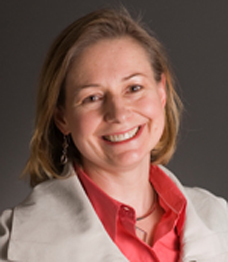2014 Walston Chubb Award for Innovation
Rosalind W. Picard, Sc.D., is a professor in the Massachusetts Institute of Technology's Media Lab, an inventor, and a leading pioneer in the field of affective computing. Her award-winning book,Affective Computing, laid an important foundation for starting this field.
Massachusetts Institute of Technology's Media Lab, an inventor, and a leading pioneer in the field of affective computing. Her award-winning book,Affective Computing, laid an important foundation for starting this field.
Affective computing is "computing that relates to, arises from, or deliberately influences emotion or other affective phenomena," according to the website for the Affective Computing Research Group at the MIT Media Lab.
Picard is the founder and director of this research group. She is also co-director of the Things That Think Consortium, the largest industrial sponsorship organization at the MIT Media Lab.
Additionally, Picard is a co-founder of Affectiva, a company developing technologies that understand human emotion so that people can have an improved experience as they interact with machines in daily life. For example, Affectiva's technology can analyze a person's emotions by tracking facial expressions. This technology can be used to measure an advertisement's effectiveness. With its software development kit, Affectiva is making this technology available to mobile app developers.
She is also co-founder and chief scientist of Empatica, which strives to improve lives with clinical quality wearable sensors and analytics.
Picard is the author of more than 200 scientific articles and chapters in multidimensional signal modeling, computer vision, pattern recognition, machine learning, human-computer interaction, and affective computing. She holds patents for innovations in new sensors, algorithms, and systems for sensing, recognizing, and responding respectfully to human affective information. These developments may be applied in autism, epilepsy, autonomic nervous system disorders, sleep, stress, human and machine learning, health behavior change, market research, customer service, and human-computer interaction.
She is an active inventor and her group's inventions have been twice named to "top ten" lists, including The New York Times Magazine's Best Ideas of 2006 for their Social Cue Reader, used in autism, and 2011's Popular Science Top Ten Inventions for a Mirror that Monitors Vital Signs.
She has consulted for Apple, CapitalOne, and Kodak, among others. She has been a member of Sigma Xi since 1986.
Read her full bio on MIT's website.
Follow her on Twitter at @RosalindPicard.
Since 2006, Sigma Xi has presented the Walston Chubb Award for Innovation to honor and promote creativity in science and engineering. The award carries a $4,000 honorarium.